Now that shoppers have spilled their secrets to engaging them the right way with SMS, we would like to share our tips for getting started and making your channel as successful as it can be. Here are six strategies to inspire your customers to opt in, and ensure they never want to opt out — because with SMS, it’s easy to give every shopper the exact experience they want.
1. Provide value to get them interested
In order to motivate your shoppers to sign up, your brand first needs to convey the value of SMS — and that looks different for every shopper. Some shoppers are only focused on getting great deals, while most British consumers are thinking about their commitment to your brand and your products. So offer them perks that are exclusive to your subscriber community, and show them how your relationship will grow and evolve once SMS is in the mix.
Our tip to engage both of these mindsets? Grab their attention from the start with the opportunity to unlock a coupon, such as £10 off, 20% off, or free shipping. But don’t stop at this limited sale — give them a glimpse of what your relationship will look like with SMS. This could be through offering exclusive first-access to new product releases, always keeping them in the loop about special events, or staying in touch with regular updates about their loyalty status. Experiment with different incentives and offer values to determine what is most attractive to your brand’s shoppers.
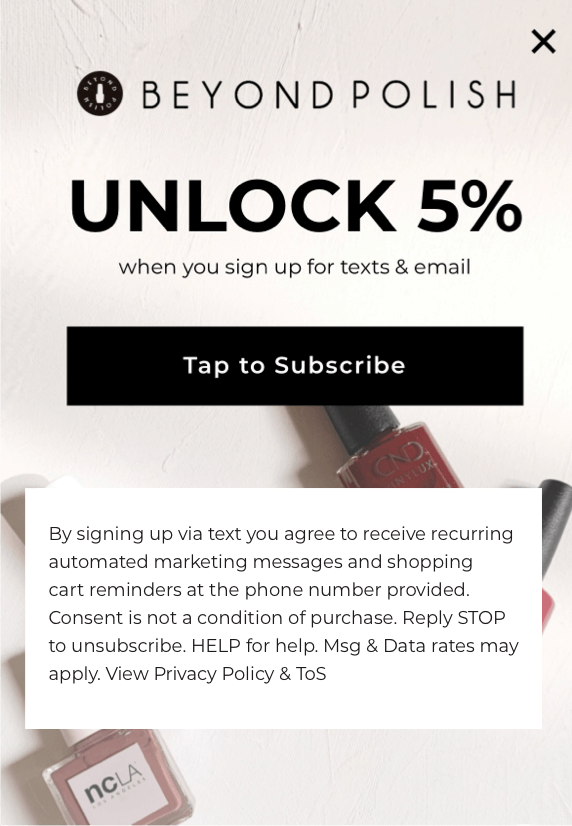
2. Make it easy for them to opt in
Once they know why they should opt in, give them multiple opportunities to do so. Meet your customers wherever they are by taking a multi-channel approach to subscriber collection, and include at least 3-4 on-site and off-site collection opportunities for maximum results. We’ve got some ideas to get you started:
- Customise branded pop-ups to catch your mobile consumer’s eye as they shop, or utilise our native tap-to-subscribe feature for even easier opt-in.
- Add a footer or checkout widget to your website to ensure you are capturing all of your site visitors.
- Send an email campaign to your email subscribers with a CTA that directs them to a dedicated SMS sign up page (where you can promote all the great things your SMS programme has to offer).
- Engage shoppers on social media by sharing a story with a unique keyword, or have them swipe up to subscribe.
- You can even use QR codes to collect subscribers at your storefront, or as part of your packaging inserts for online orders.
Audiences differ, so test out different methods of collecting your subscribers across channels, online, and offline to engage them wherever and whenever they are most active.

3. Address privacy and security concerns upfront
For shoppers who are still on the fence, there is an opportunity for brands to provide clear direction on the privacy and security measures you have in place. Your list might be built for GDPR compliance, but the average consumer might not know what that means.
Clearly communicate the strict SMS opt-in and opt-out policies you stand by, how you will be using their phone number, and why their private information will be safe with you to really create an aura of transparency and gain their trust, which will ultimately lead to higher opt in rates.
4. Leverage customer data to segment your audience
A one size approach does not fit all. Leverage the data you have at your fingertips — including gender, location, and purchase history — to segment your audiences so you are always sending the most relevant messages.
To further tailor your texts to your customers’ preferences, ask your SMS subscribers about their interests and give them options. What products are they considering, or do they want to hear more about? What types of messages would they like to receive from your brand? Not only will you learn more about your customers through this zero-party data, but you will also create a more personalised experience for every shopper, helping you to nurture the customer relationships your brand hopes to build.
If you send messages that are tailored to each shopper’s unique interests, needs, and purchase behaviours, you can guarantee that you won’t be mistaken for spam, and the frequency of your texts will no longer be cause for concern but excitement.
5. Send your most engaging content (when they can act on it)
Shoppers are most engaged by text messages that are relevant to their interests, which is why it’s so important for brands to learn about their customers and ask them about their preferences. What can you do beyond this? Greet them by name. Then include a clear call to action and a direct link in every text you send — this way, your subscriber can quickly and easily take action, increasing the chance of conversion. If they have to pull up your website or app on their own, it’s likely that you will miss out on potential revenue.
And don’t forget one of the biggest drivers of purchases: discounts. Give your subscriber community exclusive offers from time to time. If they are a loyalty member, reach out to tell them how close they are to reaching the next tier in your programme, or let them know how many points they will earn from their next order.
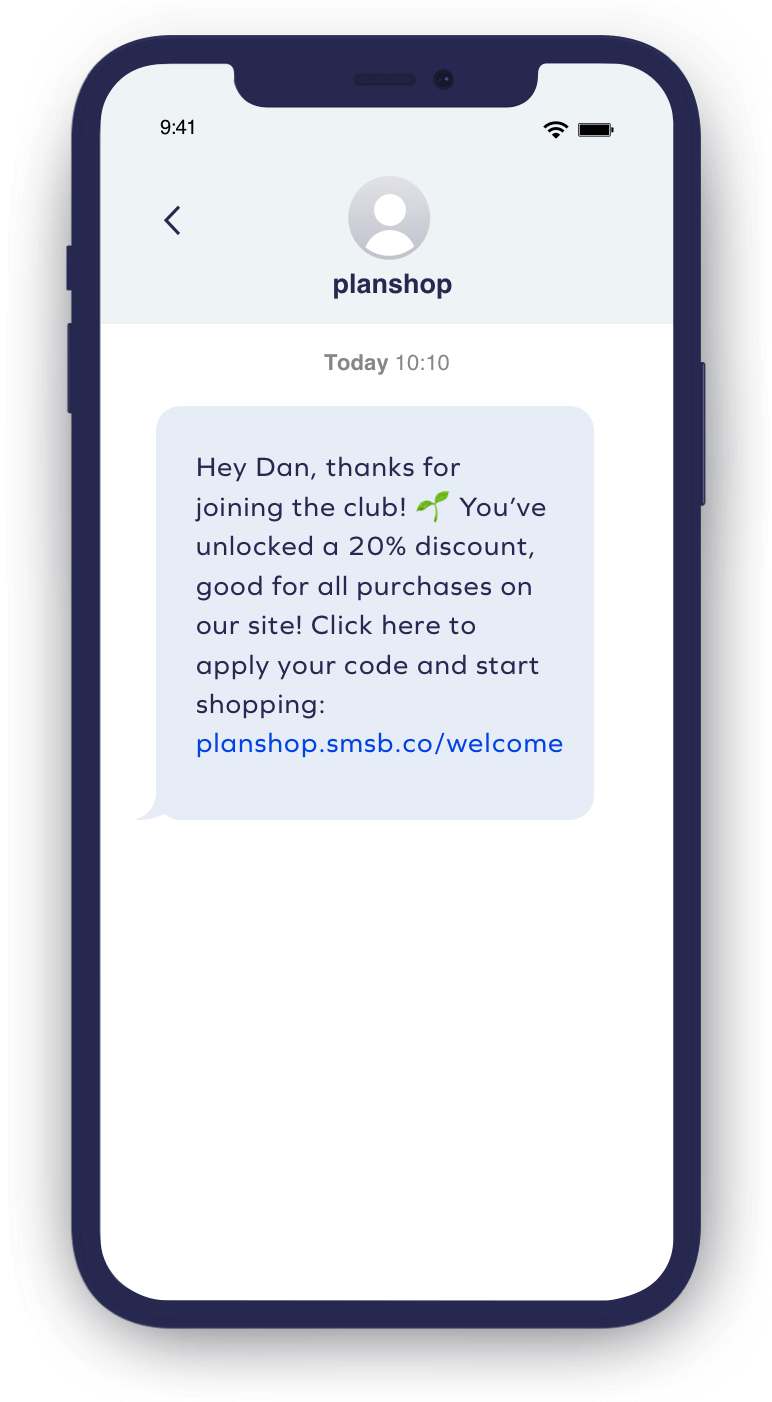
Unless your message is automatically triggered by a customer’s action (like their latest purchase), we recommend delivering the bulk of these messages within the early afternoon to late afternoon hours, when you won’t be too disruptive to your customers’ morning or nighttime routines. If you have customers in different locations, make sure to text them according to their time zones so you can stay as true to this as possible.
To determine the preferred hour for your unique customers, consider running a test: send the same message at two different times to two different groups to see which performs better. Alternatively, look back at your message performance over time to identify trends — are your click-through rates higher when texts are sent at 11:00am than at 3:00pm, or vice versa? Once you’ve narrowed down the optimal time to text, you can maximise the results of every message.
6. Supplement email with SMS
The data shows that SMS should not replace your other marketing communication channels, but complement them. Take a dual-approach to SMS and email to disseminate information appropriately and improve engagement across channels, and encourage your customers to sign up for both to always be “the first to know.” Leverage a subscriber collection tool that’s optimised for dual-capture of email and SMS, so you can consolidate collection efforts with one engaging touchpoint.
With these two different channels comes the opportunity for different content, so don’t just copy and paste what you wrote in that email into your next text. Because of the brief and conversational nature of text messages, brands can take a more casual, fun, and personal approach to text messaging while still maintaining your unique brand voice.
If you are not sure which channel to use for which message, you don’t have to guess which is best — let your subscribers decide. Send a text to ask them which messaging interests them the most. Consider prioritising SMS for messages of high urgency that your customers need and want to know, like order status updates or limited time offers — 27% of shoppers said a text with a countdown to when a sale or offer expires would encourage them to complete a purchase.
Keep an eye on your metrics, and A/B test your text messages so you can optimise for even better results. Adding a sense of urgency and personalising the copy of your SMS campaigns can significantly boost performance.
Conclusion
SMS might still be under the radar in the UK, but the numbers show that it is a highly desirable and valuable communication tool for brands and consumers alike — when it is done right. With these shoppers’ secrets and our strategies, you can jump into the channel today and be on your way to crafting a mobile experience that makes them fall in love with your brand.
But remember, SMS is not a set it and forget it channel — so ask your shoppers for feedback, analyse your data, and optimise as you go, and it will quickly become one of your brand’s top revenue drivers.
At Yotpo, we’re experts at building an SMS marketing strategy from the ground up and optimising the channel to meet your brand’s goals, create captivating customer experiences, and spark relationships that drive revenue. Request a demo with us to learn more secrets to SMS success, or get started now.



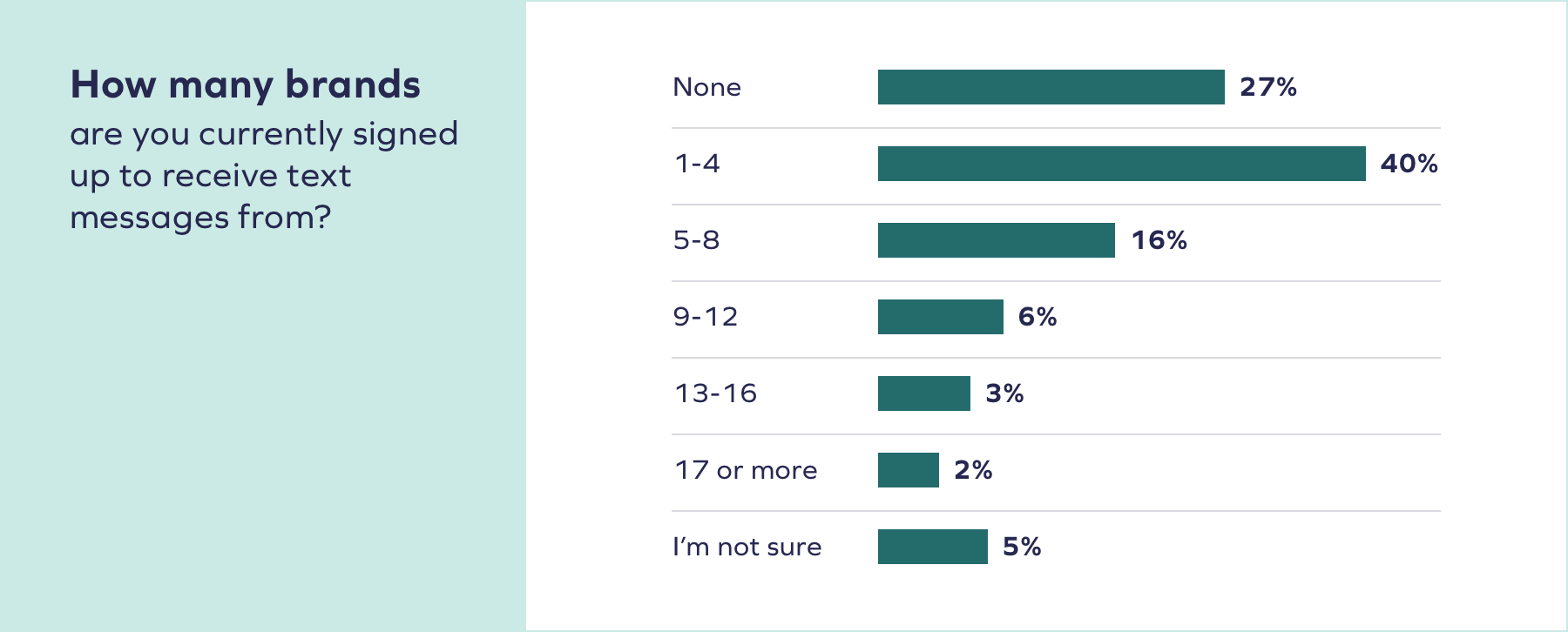


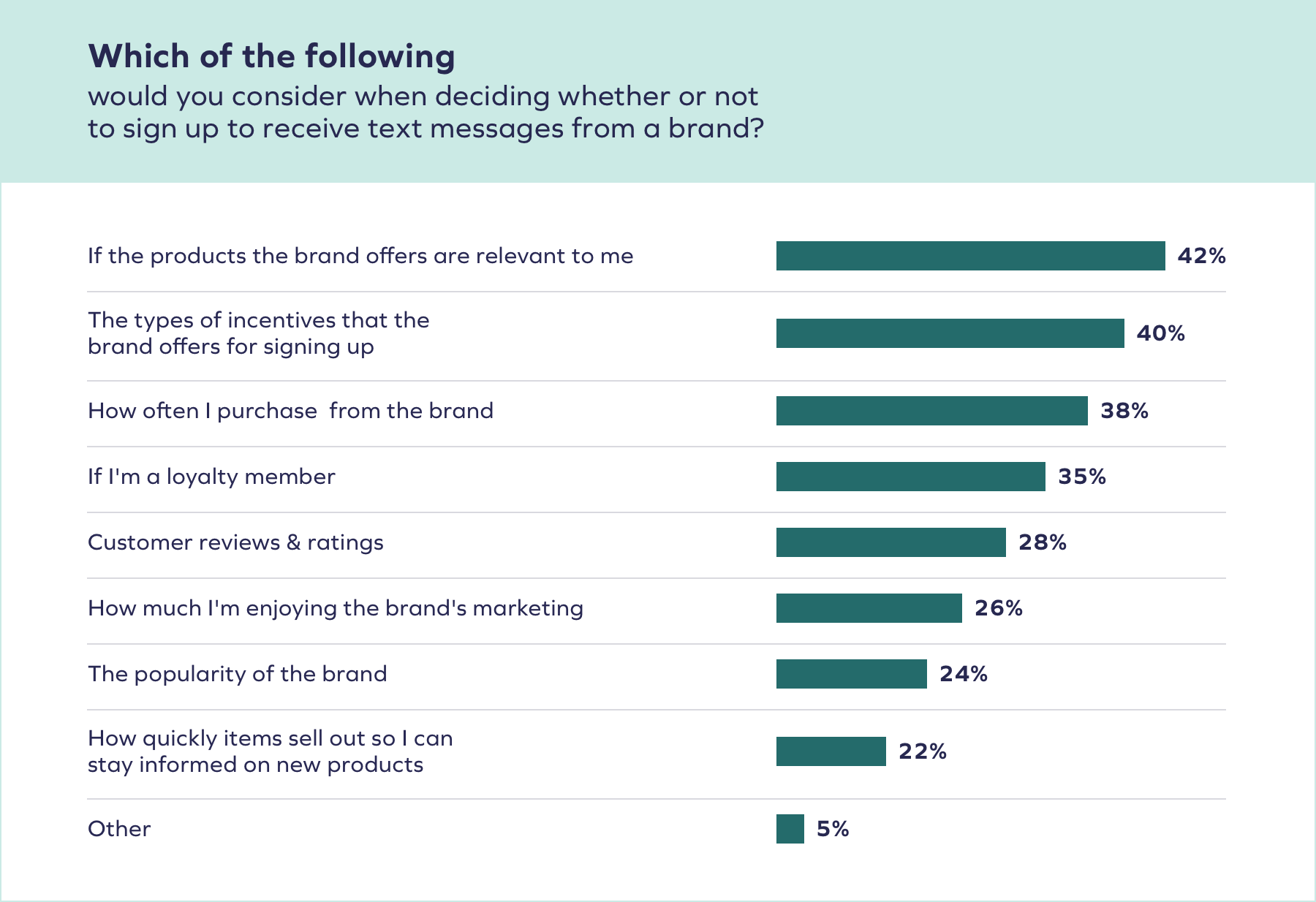
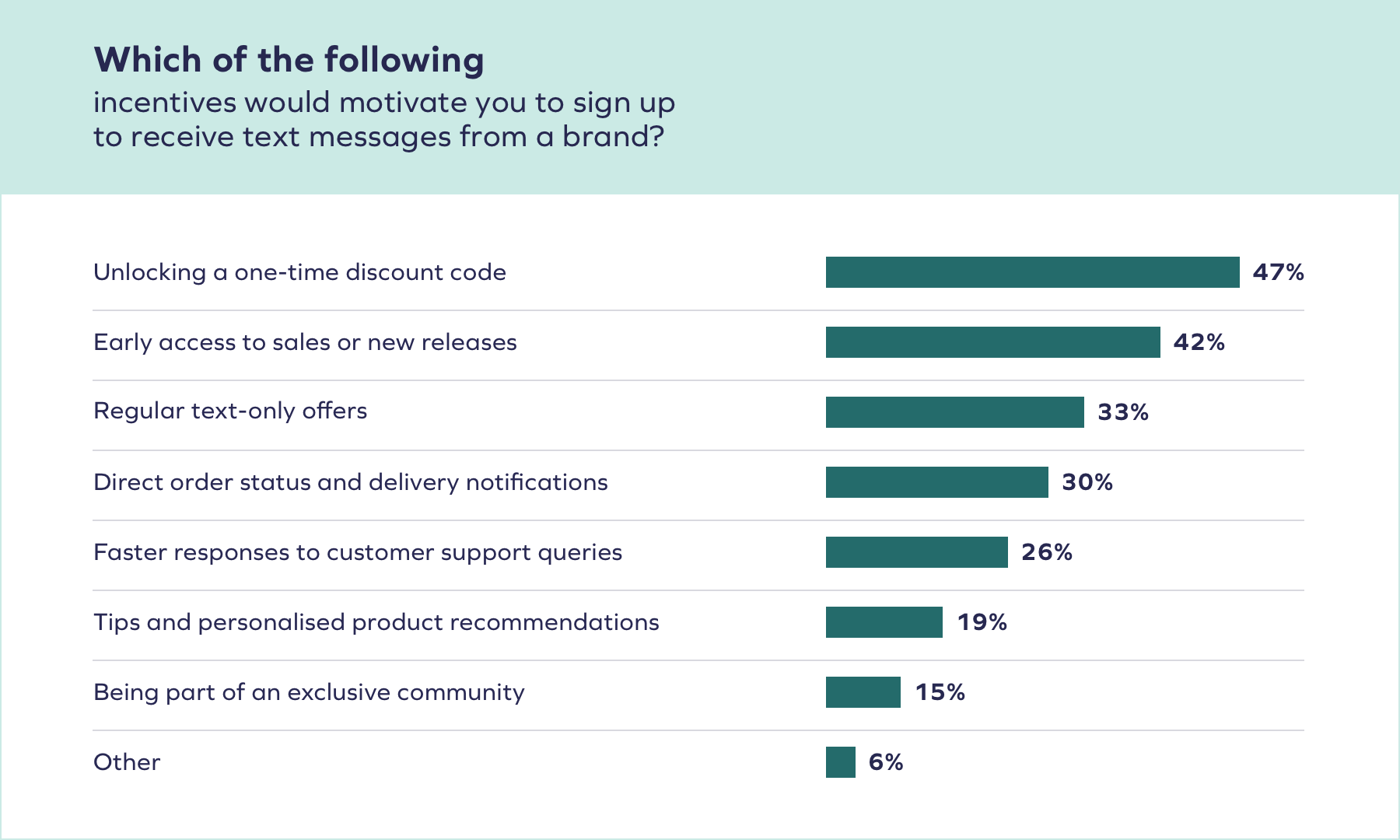

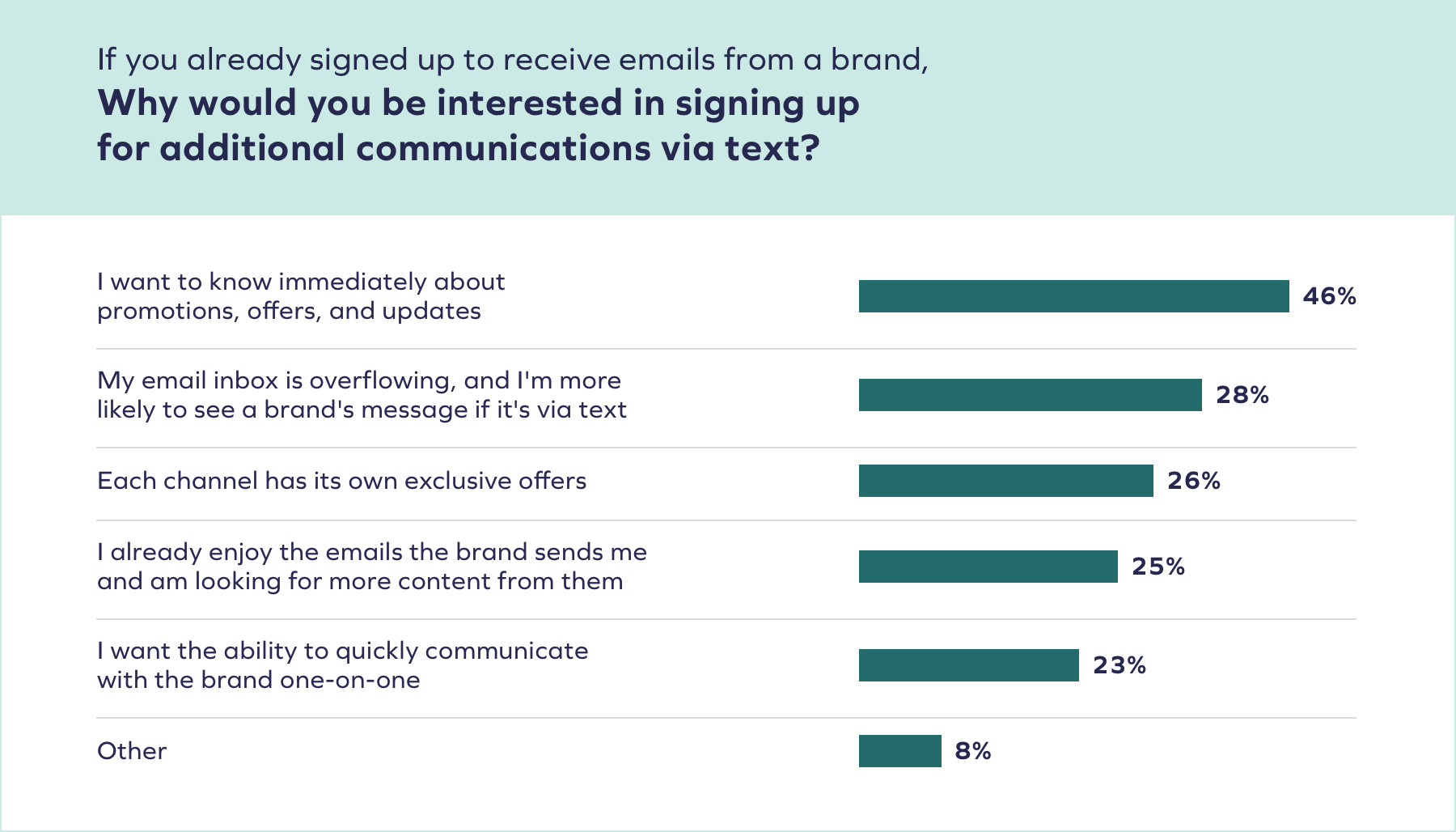
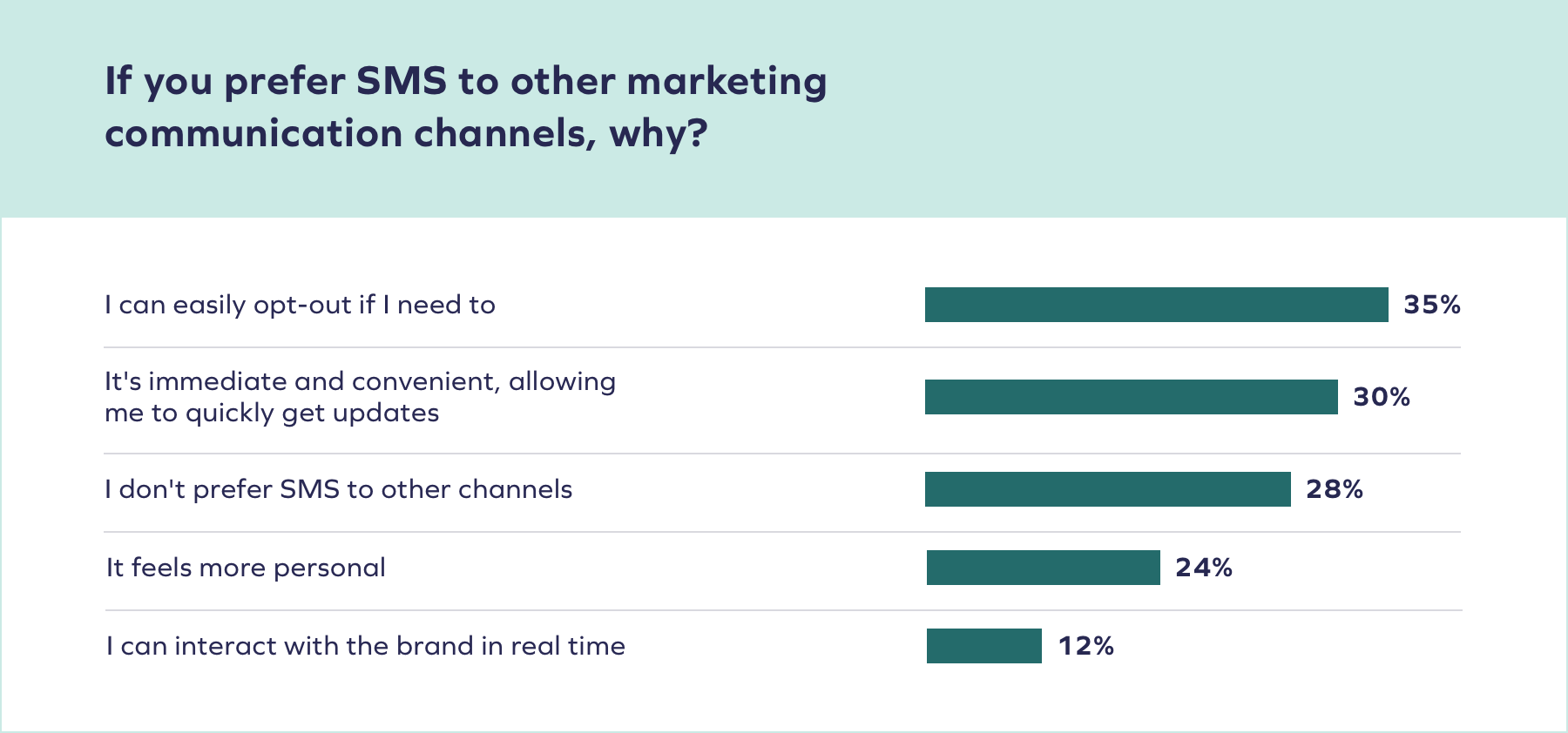

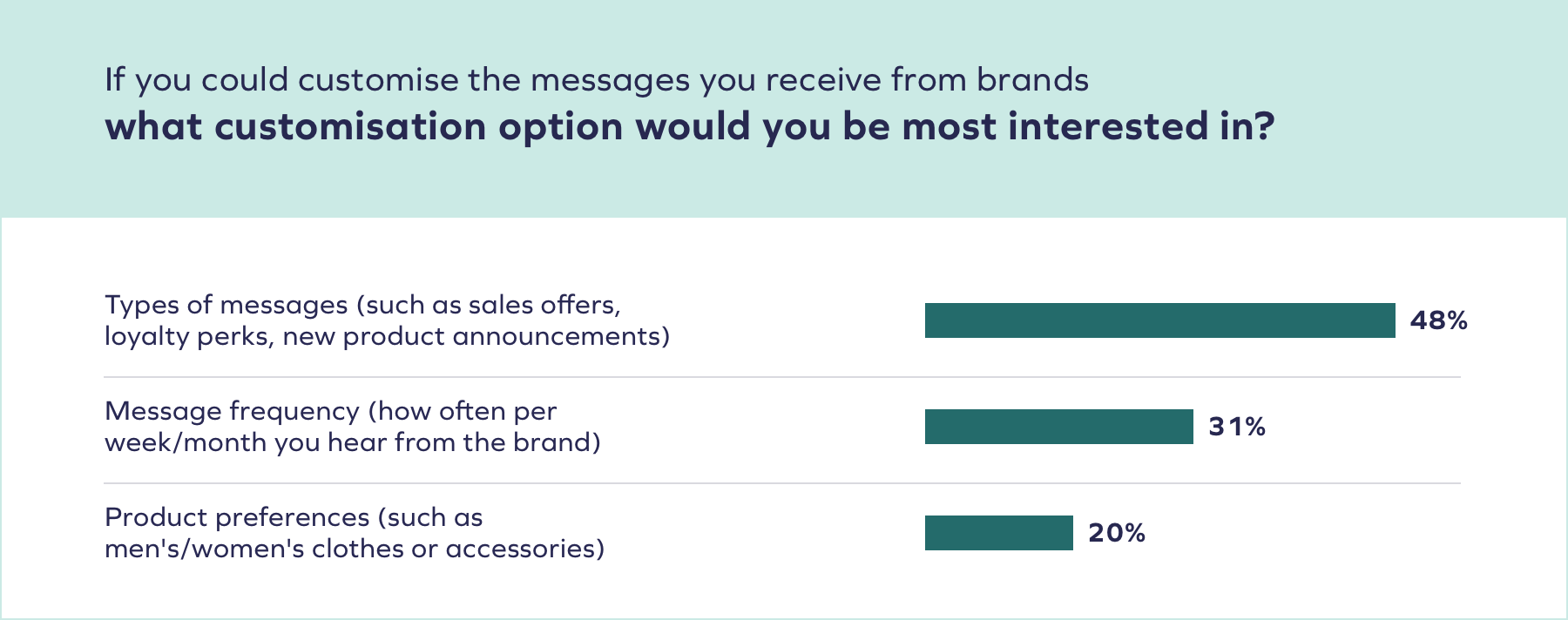
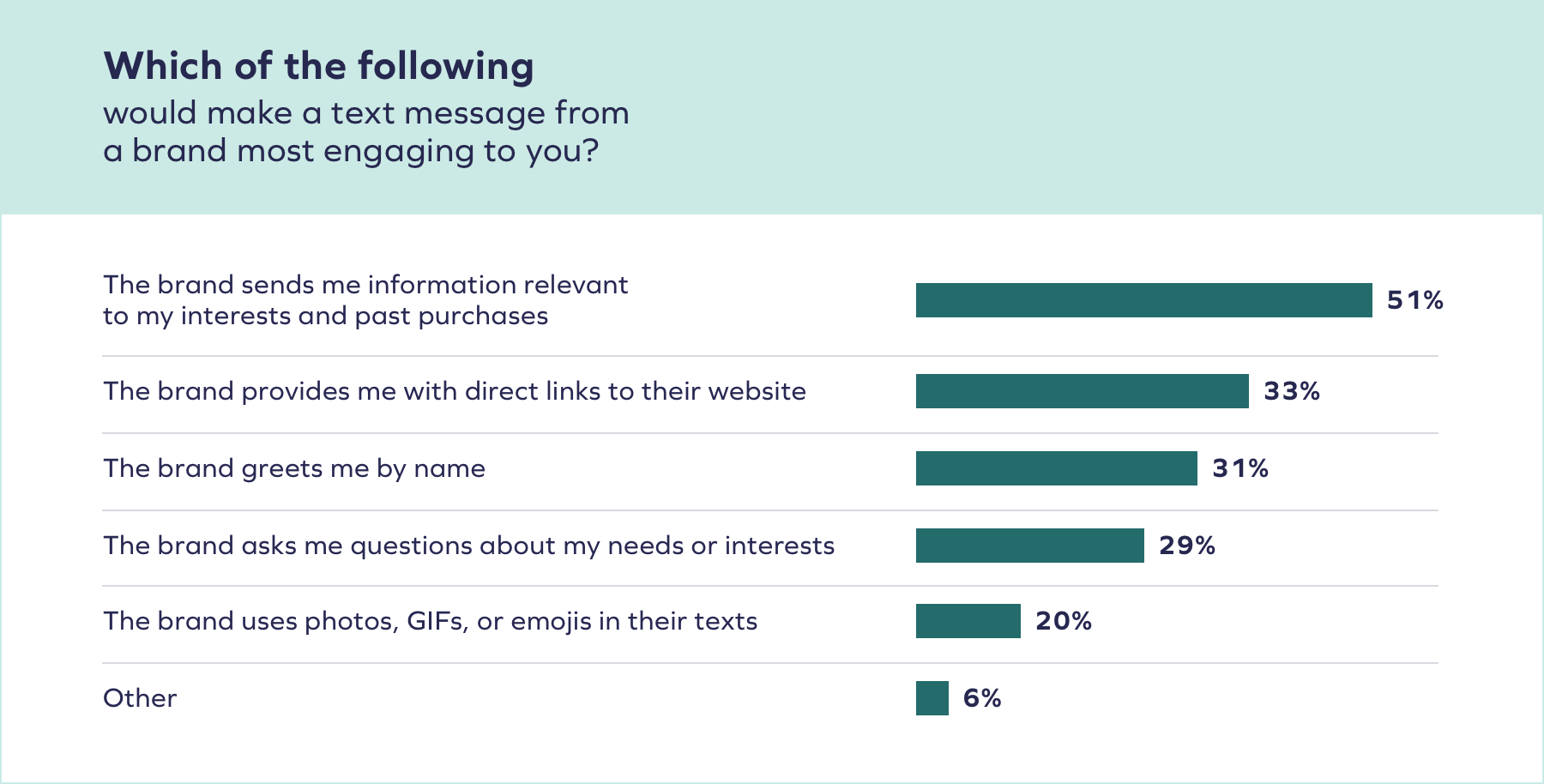
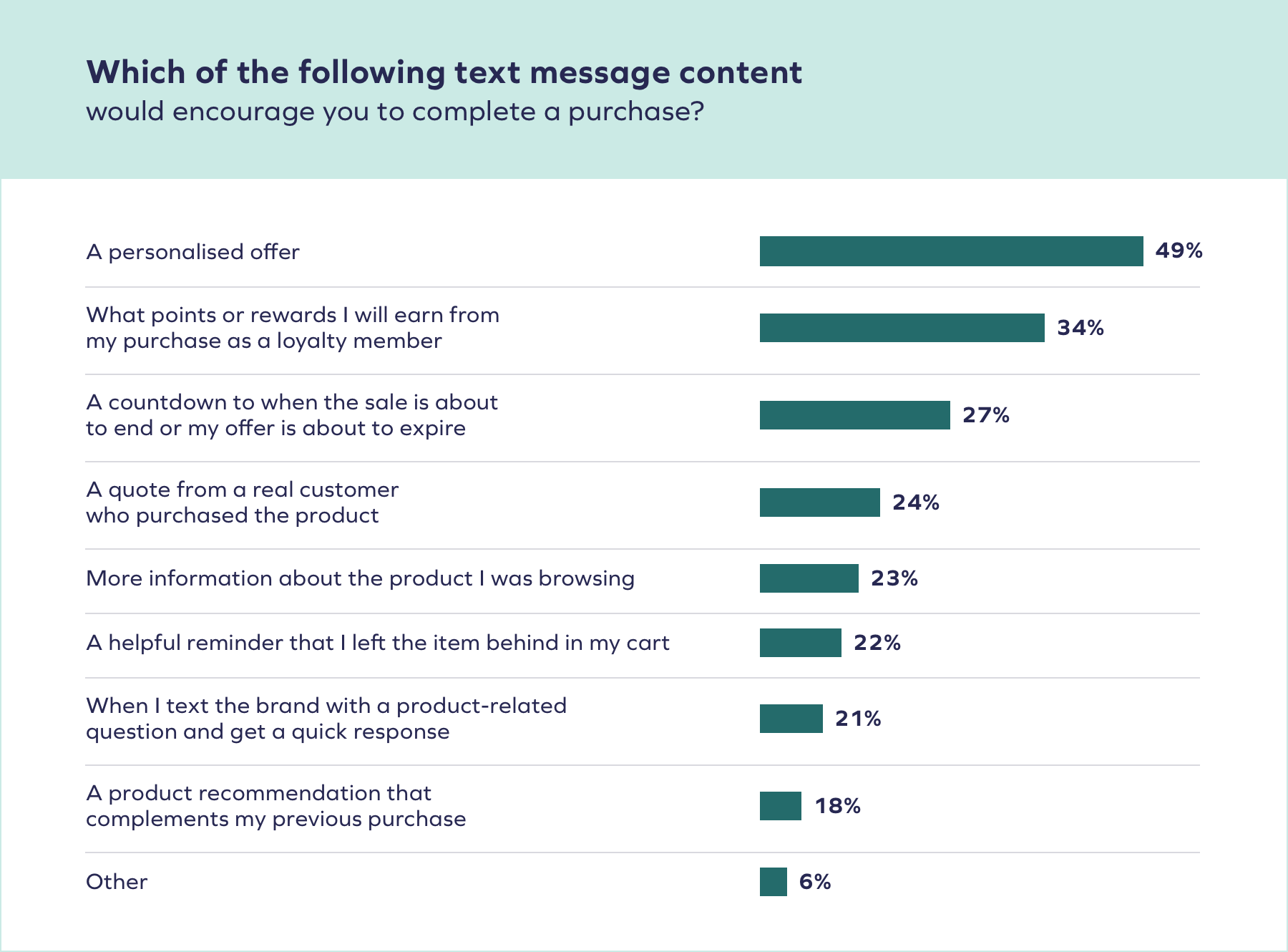


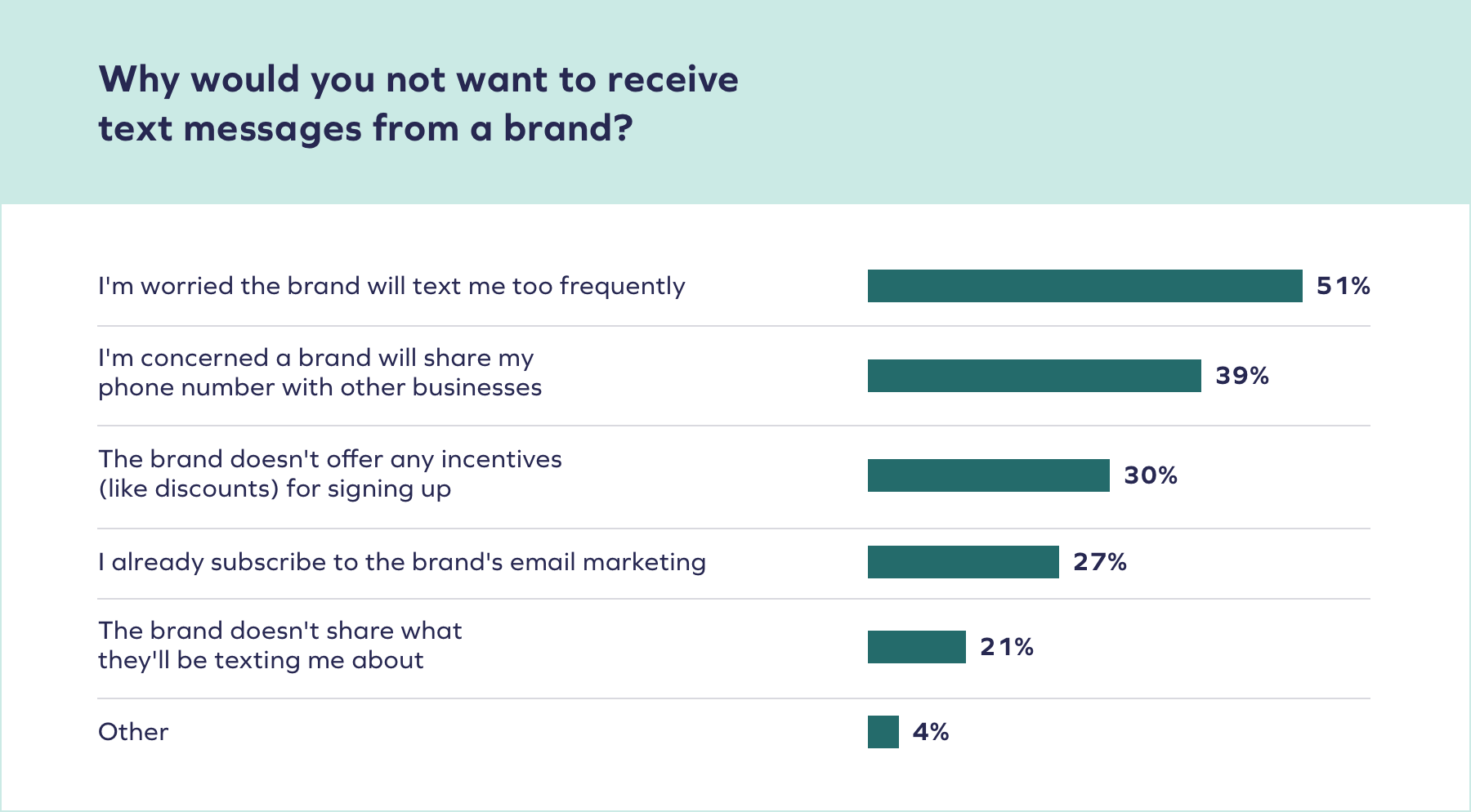
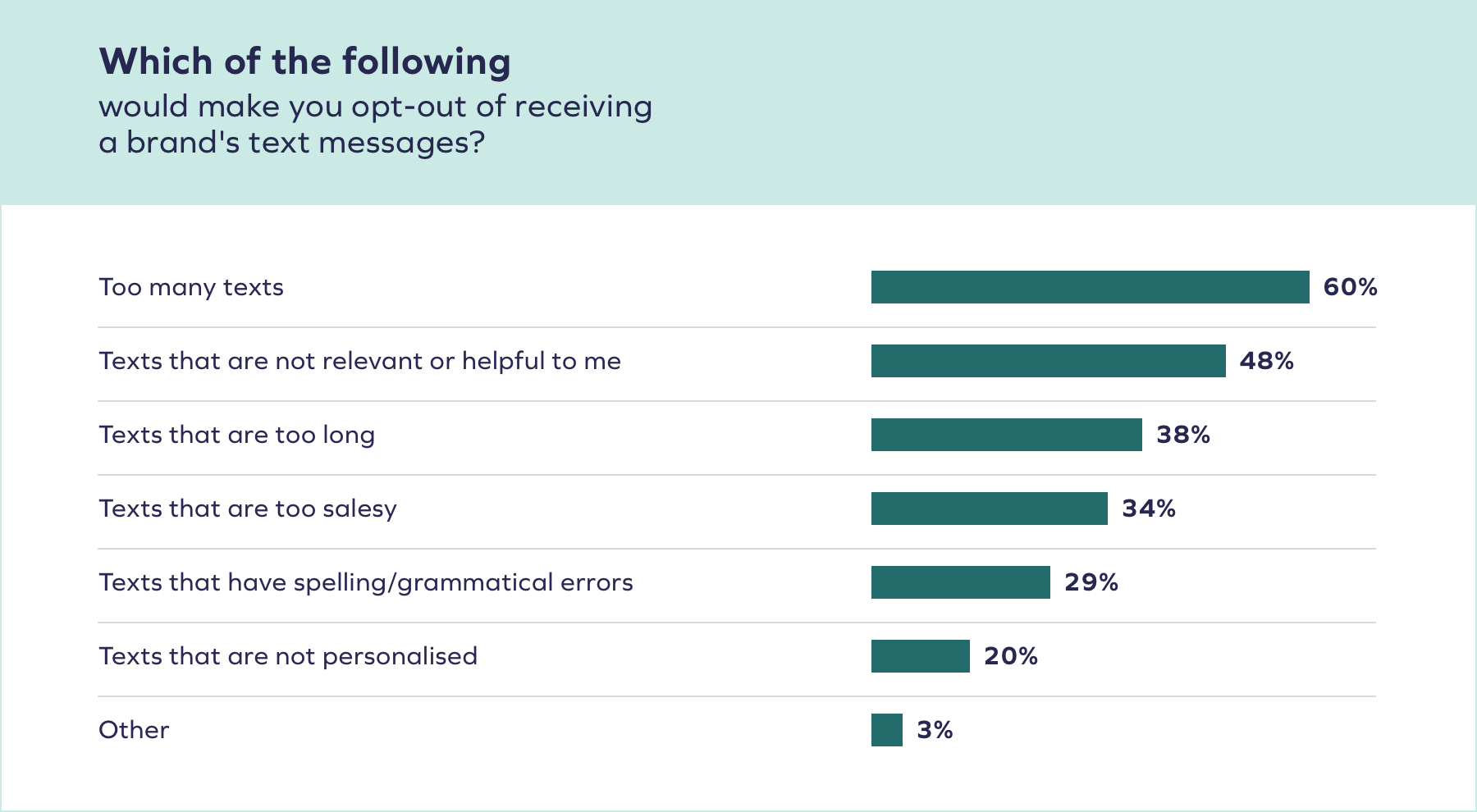














 Join a free demo, personalized to fit your needs
Join a free demo, personalized to fit your needs